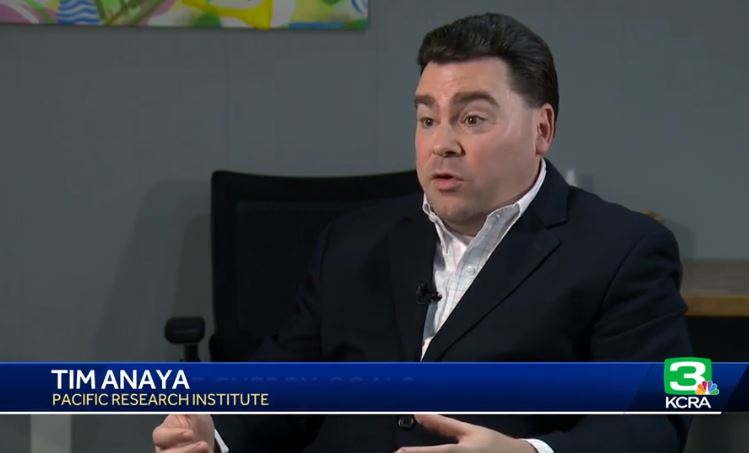If the recent PPIC debate is any indication, expect this year’s race for State Superintendent of Public Instruction to be a close race with clear differences between the two candidates.
Assemblyman Tony Thurmond, D-Richmond, wins the contest for most compelling personal story. His father abandoned his family when he was very young, and his mom raised 4 kids as a single parent until she died of cancer when he was just 6 years old. Raised afterward by a distant cousin, he went on to a career in social work, and later elective office.
His opponent, Marshall Tuck, was a tech leader before switching career paths to become president of the nonprofit Green Dot public charter schools in Los Angeles. He later served as CEO of the Partnership for Los Angeles Schools between the Mayor’s office and LA Unified School District. He ran for State Superintendent in 2014, losing narrowly in the general election.
Both candidates would be wise to read An American Education Agenda, a recent book by Koret Senior Fellow in Education and Senior Director of PRI’s Center for Education Lance Izumi outlining 15 local, state, and federal recommendations that should be at the top of any education reform agenda.
On the issues, each spoke of confronting California’s achievement gap – the disparity between students from different ethnic backgrounds in achieving proficiency in English and math. Tuck spoke of the 3 million California students who can’t read and write well today.
Increasing education funding was also a key priority for both. Tuck spoke of ensuring that Local Control Funding Formula (LCFF) dollars – extra dollars for disadvantaged students – is spent on kids most in need. He pledged to stop the practice of districts spending LCFF dollars on teacher raises, which Assemblywoman Shirley Weber has said, “is not what we intended at the state level.”
Thurmond said he would create a working group to identify “new sources of funding” – i.e. tax increases. He suggested a split roll property tax, oil severance tax, and soda tax as ideas worth considering. Tuck wants to reprioritize existing budget spending more effectively, though he also endorses a split roll.
Izumi recommends increasing education finance transparency, such as Colorado’s school finance transparency program which requires school-level financial data posted online.
Thurmond said that we spend too much time blaming teachers for everything rather than helping them succeed. Izumi recommends that state teacher education and preparation programs – especially in digital learning – be improved. He also recommends base teacher layoff policies on quality rather than seniority and streamline the process to remove ineffective teachers from the classroom.
The biggest difference between the two was on charter schools. Tuck is a strong charter school proponent. Thurmond said there is a role of charter schools, but touted his efforts passing bills banning for-profit charter schools and supporting what he calls “accountability” for charters.
Izumi recommends that California enact an expansive private school choice program, such as Arizona’s education savings account program, and repealing state laws that impede school choice expansion.
In the June primary, Tuck and Thurmond were separated by just 1.4 percentage points statewide. Teacher unions and allies spent more than $3.6 million promoting Thurmond, and education reform advocates spent more than $8.5 million backing Tuck. Expect a fierce fall campaign to be waged between the two over the future direction of California’s schools.
Tim Anaya is communications director for the Pacific Research Institute.

